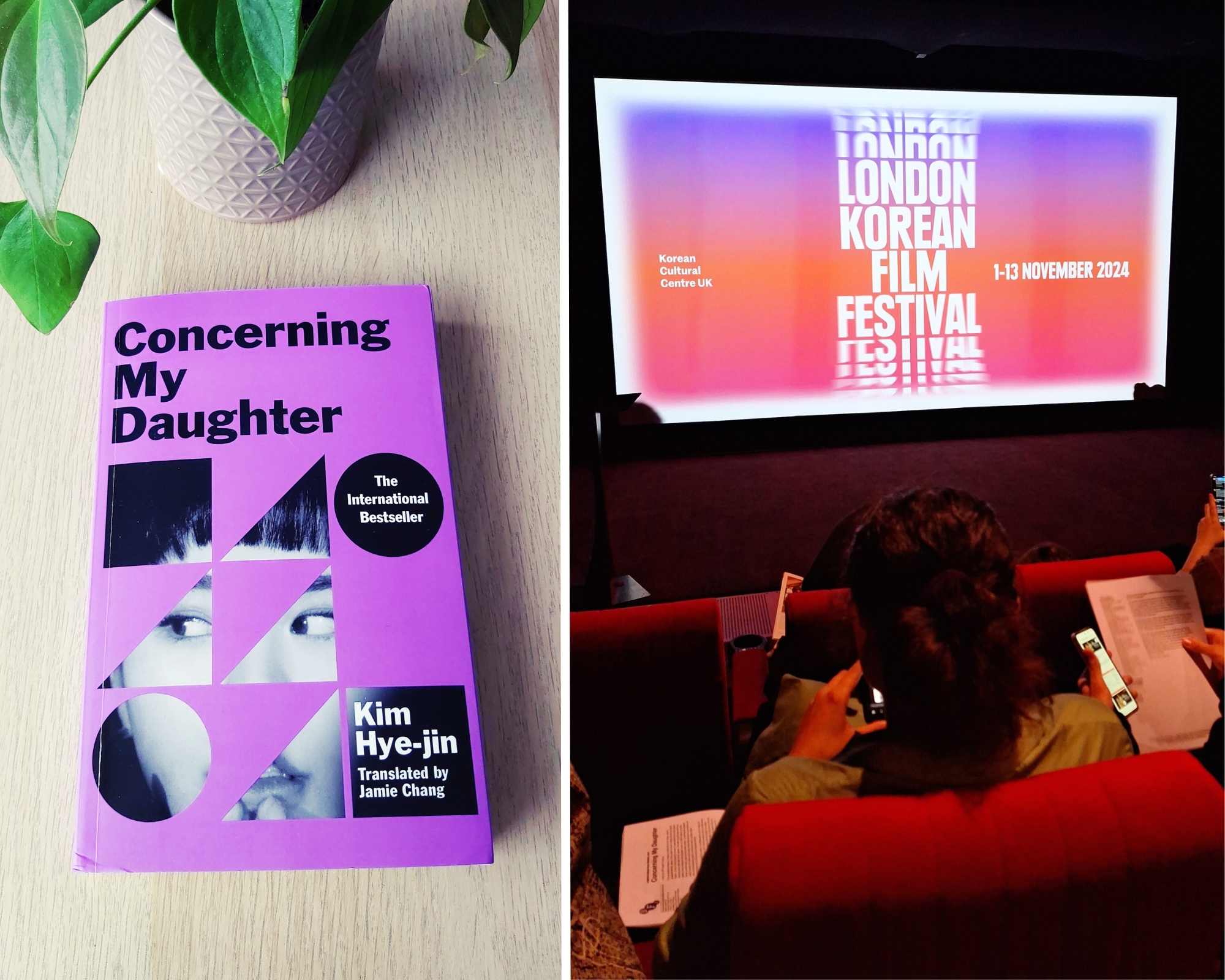- 한국어
- English
- 日本語
- 中文
- العربية
- Español
- Français
- Deutsch
- Pусский
- Tiếng Việt
- Indonesian
By Honorary Reporter Marianna Szucs from Hungary
Director Lee Mi-rang's feature film debut "Concerning My Daughter" was part of the section "Women's Voices" at this year's London Korean Film Festival last month.
Shown at the event on Nov. 7, the LGBTQ-themed movie is based on Kim Hye-jin's international bestselling novel. As the book is one of my five favorites from Korea, I was excited to see its silver screen adaptation.
I'm an avid fan of Korean literature, so I regularly monitor releases of translated works. In June 2022, I found "Concerning My Daughter" on a bookseller's website and later finished reading it in nearly one sitting.
I reviewed the book for U.K.-based Korean cultural organizations like the Korean British Cultural Exchange and Hallyu Con and used it to take part in the 2023 Korean Literature Review Contest. I was also among the few who had read the novel when asked by festival curator Lee Eunji.

On the left is my copy of the novel "Concerning My Daughter" and on the right is a scene from the screening of the film version on Nov. 7. (Marianna Szucs)
"Concerning My Daughter" is about a worker at a nursing home with traditional views and her daughter, who has a same-sex partner. While the novel conveys the mother's feelings through harsh and blunt expressions, the film takes a more nuanced approach.
The palpable tension between the mother and the gay couple is shown through the outstanding performance of actor Oh Min-ae, who plays the mother. Instead of replicating the raw outrage and intense prejudice in the novel, the film explores the mother's emotional struggle in an understated and reflective manner.
In the novel, the mother aggressively pushes her daughter toward a traditional life of heterosexual marriage, well-paid job, children and stability. The film, however, handles this tension more delicately, with only one emotional outburst between the characters.
I found both the novel and the film ground-breaking. Both offered a process for everyone to accept something after an initial strict refusal. Unlike the novel, the film has the mother not blaming herself but searching for mistakes or bad parenting that prevent her from understanding her daughter.
Director Lee highlighted the contrast between the mother's strict and unyielding attitude toward her daughter and her passionate kindness and acceptance toward her patient, a duality that leads to change.
The film also covered broader issues such as sexism, gender, feminism, aging, university employment, care home funding and standing up for oneself.
msjeon22@korea.kr
*This article is written by a Korea.net Honorary Reporter. Our group of Honorary Reporters are from all around the world, and they share with Korea.net their love and passion for all things Korean.